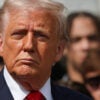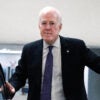In the currently battered U.S. economy, with high unemployment and bleak growth prospects, politics has become a contest of dueling jobs plans: politicians of every stripe have them. Their motivation may be sincere, but their concept is wrong – and they are just perpetuating the myth that government can create jobs. It can’t. It can only maintain conditions that are conducive to economic growth. That is the real engine of job creation, and it’s where policymakers should place their focus.
Job creation is a function of producers meeting the demands of consumers for greater well-being (economists call this “utility”), resulting in business growth, such as new capital and labor. This is economic growth. But “jobs bills” are generally counterproductive to economic growth.
Consider how government “creates jobs.” It moves capital and labor produced by the private economy to activities it determines are worthwhile. Indeed if politicians “created jobs” for everyone, the economy would produce nothing.
The Daily Signal depends on the support of readers like you. Donate now
Common in many jobs bills, for instance, is the idea of infrastructure jobs, or “shovel-ready jobs.” Yet, they are only beneficial to the economy to the extent that they increase economic productivity. For example, hiring people to build a bridge that will stand unused benefits no one. It would be equally as effective to hire people to watch paint dry. However, if a bridge is constructed that is genuinely needed, enabling people to commute more quickly to and from work, economic productivity will increase. People will spend more time working and less time commuting.
So the policy concern should be: how can the government encourage more work and economic productivity?
Rather than looking for elixirs and silver bullets, policymakers should look at incentives. Incentives drive productivity. Productivity drives economic growth. Bad policy aimed at “creating jobs” derails economic growth and thus prolongs and even worsens the unemployment the policy is aimed to combat. First emphasize growth. Job creation is its product.



























